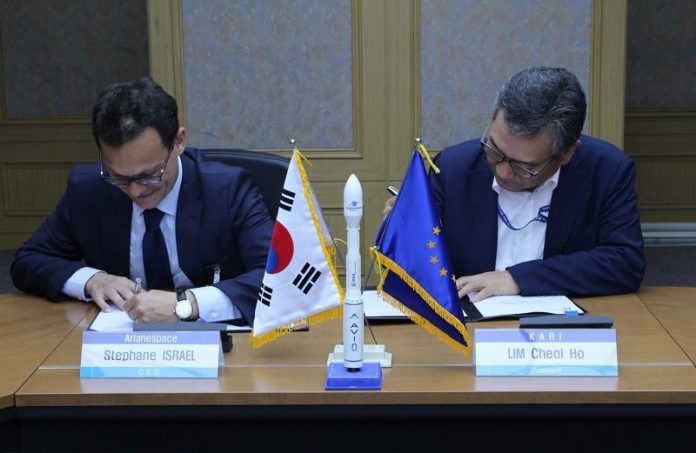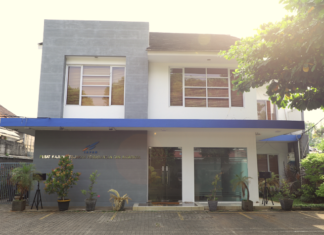South Korea’s space agency, the Korea Aerospace Research Institute (KARI), will launch earth observation satellite KOMPSAT-7 on Arianespace’s Vega C rocket in 2021.
KOMPSAT-7 will be the fourth KARI satellite – as well as the ninth Korean satellite – to be orbited by Arianespace to date. Currently, Arianespace is due to launch GEO-KOMPSAT-2A & 2B, two of KARI’s geostationary earth observation satellites, aboard its Ariane-5.
Stéphane Israël, Arianespace CEO, welcomed the contract signing, saying: “We are delighted that KARI has chosen Arianespace and Vega C to launch KOMPSAT-7. At a time where we are preparing for the launch of GEO-KOMPSAT-2A & 2B for KARI, it means a lot when such a close partner confirms the relevance of our solutions towards the dynamic Earth observation market. By embarking this satellite expected to step up Korean Earth Observation capacities, European launchers will support an ambitious national space program and contribute to strengthening the strong bond between Europe and South Korea.”
This will be Arianespace’s first time orbiting a satellite from the KOMPSAT series, which comprises five previously-launched satellites (KOMPSAT -1, -2, -3, -3A, -5) and two planned satellites (KOMPSAT -6, -7).
So far, most KOMPSAT satellites have been launched by Russia/Ukraine, with KOMPSAT 3A and KOMPSAT 5 using the now-defunct Dnepr, and KOMPSAT 2 using Russia’s Rokot. Its next launch, KOMPSAT-6, is slated to take place in 2020 using Russia’s Angara 1.2, which is currently under development.
KOMPSAT-7, whose designed is based on KOMPSAT-3, will weigh approximately 2,000 kg at launch and will be placed in a Sun Synchronous Orbit (SSO). The satellite will be equipped with the high resolution camera named AEISS-HR (Advanced Earth Imaging Sensor System with High Resolution), which possesses 0.3m or less resolution, and is an upgraded version of KOMPSAT-3’s AEISS.
A few days ago, Arianespace signed another contract for its Vega-C – Thailand’s THEOS-2, a very-high-resolution Earth observation optical satellite delivering 0.5-meter ground resolution imagery, and will be based on Airbus’ AstroBus-S platform.







